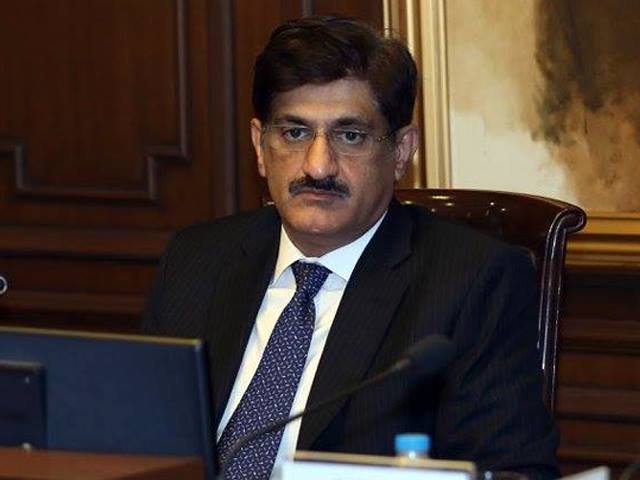KARACHI: Sindh Chief Minister Syed Murad Ali Shah Wednesday said that he believed as Pakistan moved forward in the talks with International Monetary Fund (IMF), the line the federal government would take on the issue of sales tax would be in compliance with the constitutional position, ensuring respect for the provincial autonomy guaranteed in the constitution of Pakistan.
In a letter to Prime Minister’s Advisor on Finance and Economic Affairs Dr Hafeez Shaikh, the Sindh chief minister quoted a news report which read: “The government has conceded to the IMF that the present arrangement of four provincial and one federal authorities looking at goods and services tax has increased the cost of doing business in an exponential manner and large businesses have been complaining about the compliance cost.”
It further read that the government had told the IMF that in three years’ time, the government will move to a single tax collection agency with single return and single auditing authority to cut down on compliance costs.
Shah said that the news reported does not correctly represent the purpose of the talks held on the sales tax issue during Pakistan’s mission to the IMF earlier last month. “Nevertheless, if that is not the case, the arrangement under contemplation would be contrary to the express stipulation of constitution of Pakistan, which, against entry No.49 of its fourth schedule (federal legislative list) provides tax on the sales and purchase of goods imported, exported, produced, manufactured or consumed except for sales tax on services,” Murad said.
He reminded Dr Hafeez Shaikh that in his previous capacity as finance minister of Pakistan, Dr Shaikh had been a part of momentous changes that witnessed the transfer of collection of sales tax on services, initially, to Sindh in 2010, followed by other provinces.
The chief minister further told the advisor on finance that Sindh had come a long way since the time it had assumed the collection of sales tax on services. “We will be glad to see or be a part of any effort that leads to improvement in the overall tax collection system it the country, being an important stakeholder under the NFC scheme.
He added: “Given its experience and success it has made in the levying and collection of sales tax on services in the last eight years, Sindh can offer meaningful input for the present tax structure within the domains prescribed in the constitution.”




